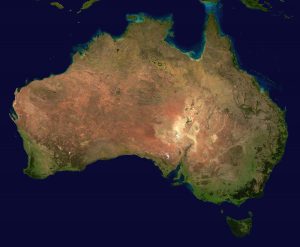
The Australian government has announced inaugural seed funding of AUS$26 million over four years to establish an Australian Space Agency, as part of a larger AUS$41 million investment in space-related funding.
Although this funding is less than the predicted AUS$50 million due to an overall reduction in government spending on science and research, it ends Australia’s status as one of the only OECD countries without a space agency, and it is predicted to boost the Australian space sector.
Australia has developed expertise in several space-related areas, such as using optical lasers to track space junk, and, with the U.S., operating the Pine Gap global reconnaissance facility to track reconnaissance and other intelligence-gathering satellites. Its domestic space industry is worth AUS$1.2bn, or just 0.4 per cent, of the global space market.
Over four years, AUS$26 million will be used to establish the Australian National Space Agency; for now, the new agency will focus on positioning, navigation, and timing (PNT), as well as Earth observation applications. Dr. Megan Clark, former head of the CSIRO, is tipped to serve as its head.
Approximately AUS$260 million will be invested in applying satellite data to Australia, mostly in precise positioning but also in satellite imagery. This includes AUS$225 million for precise positioning technology that makes GPS signals accurate to centimetres, which unlocks efficiency and automation possibilities in agriculture, mining and transport. AUS$36.9 million will be used to improve “Digital Earth Australia”, a platform assembling global satellite images of Australia in a user-friendly and publicly accessible way. AUS$15 million in grants over three years will go toward international space investment.
Stakeholders in science and business have been calling for an Australian Space Agency for nearly 20 years.
“We have geography on our side, a huge land mass, not a lot of people and proximity to the equatorial sweet spot for launches. Other countries would kill for that,” said Brad Tucker, an astrophysicist at Australian National University, in a report in the Financial Times. “But until now we’ve been missing the co-ordination that a national agency can deliver — now that will change, and it should help industry grow.”
Last year, New Zealand set up its space agency, and many European nations too small for their own agencies are members of the European Space Agency. The global space economy has emerged rapidly over the last decade, as technological advances have cut the cost of launching small satellites, while the era of big data has created greater markets for space-based applications for services such as logistics and climate monitoring.
“For a long time, Australia has been drifting in space and there is no doubt a space agency will help promote the industry at home and abroad,” said James Gilmour, a director of Gilmour Space Technologies, a Queensland company that develops rocket technology, to the Financial Times.





